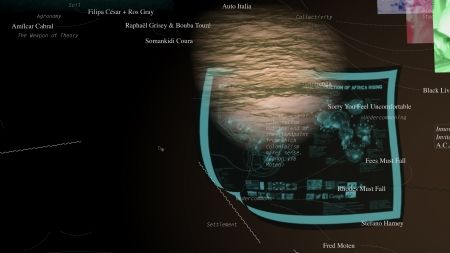Tate Britain, The Clore Auditorium Millbank London SW1P 4RG Monday 14 November 2016, 7-9.30pm £8.00, concessionary rates available. Book here. 2016 marks the 50th anniversary of the founding of the London Film-makers’ Co-op, the artist-run organisation that pioneered the production, distribution, and exhibition of artists’ moving image in the United Kingdom, and which remains vibrant today. To commemorate the legacy of the Co-op, Tate Britain and LUX have programmed a monthly series of screenings and conversations that revisit its significance and its future. Jean Matthee was part of an activist film collective in 1970s South Africa whose films were confiscated by the secret police of the apartheid regime. Mathee joined the London Film-makers’ Co-op after her arrival in London in 1976, making films from a feminist perspective that intersected with questions of class and race, pushing the Co-op's optical and contact printers to its limits. As a theorist, non-aligned scholar, bluestocking and practitioner, Matthee continues to engage with multiple material supports that work toward a future in which the health of the earth is not constrained by the privileging of humans. Matthee, in collaboration with artist Tommie Introna, will present a cosmogramma of co-operative and collective ecologies. Kodwo Eshun and Anjalika Sagar of The Otolith Group will present two of their films: People to be Resembling (2012), a study of the migrant methodologies of the post-free jazz, pre-world music trio Codona and In the Year of the Quiet Sun (2013), a post lens-based portrait of political astronomy in which the solar cycle of the quiet sun converged with the season of conferences in 1960s Accra and Addis Ababa that planned the continental polity of Pan African governance. After the screening, you are invited to join Jean Matthee, Anjalika Sagar and Kodwo Eshun in conversation with Maria Palacios Cruz, Deputy Director of LUX, London. What insists in Jean Matthee’s praxis is the designation of dubious modalities as part of her art practice using multiple material supports. These have an open/closed topology, folding art and life in an emancipatory trajectory. Her militancy a theoretical performance. In 2012 Matthee inaugurated and curated Topology at Tate Modern – an eight-month series of trans-disciplinary, trans-generational and trans-national events exploring personal, social, political and geographical notions of space and the networks that connect them. Her cartographic work Life in Fold’s in the exhibition 'From Floor to Sky' (2010) also mapped these kinds of topological operations in multiple material supports. In 2008 Matthee created Eating Rawness for the activist platform Dictionary of War in Novi Sad, Serbia. Matthee collaborated with the curator Grant Watson and If I Cant Dance I Do Not Want To Be Part of Your Revolution on his project How we Behave. In 2013 she co-curated and collaborated with artists / activists / refugees from Lampedusa at Teatro Valle in Rome, 2013. Since 1976 she has traversed London almost everyday, to participate in public platforms, improvising from the floor and often speaking to danger. Jean Matthee’s Neon Queen (1986) and Antigone’s Cut (1987) were recently screened as part of 'From Reel to Real: Women, Feminism and the London Film-makers’ Co-op' at Tate Modern. The Descent of the Seductress and Neon Screen were recently screened at LFMC 50: Cinema of the Body at the BFI and Anthology Film Archives in New York as part of the LMFC celebrations.
